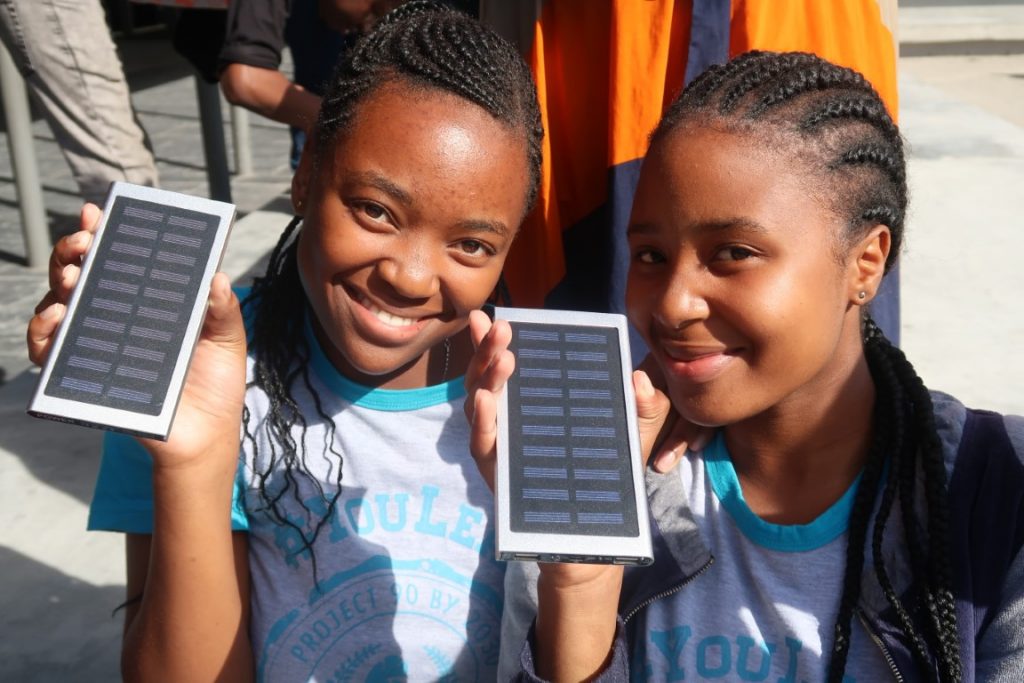BackBuddy / Ayakha Melithafa (Pictured on the left)
In 2018, then 16-year-old Ayakha Melithafa began to question why drought was so bad in her country and, especially, her hometown – a small farming town in the Eastern Cape of South Africa. The daughter of a farming family, the drought threatened their ability to plant crops and caused the deaths of some of their animals, which threatened their ability to survive. Friends were also suffering, with some becoming ill after drinking dirty or unpurified water to survive the drought.
Her search for answers led her to learning about climate change while enrolled at the Centre of Science and Technology in Khayelitsha, followed by joining the social and environmental justice organizations Project 90 by 2030 and the youth-led African Climate Alliance.
Ayakha quickly became a leader among the groups. Within a year, Ayakha joined fifteen other youth from around the world in submitting a legal complaint about climate change to the United Nations. The petition (downloadable here) demonstrated that world leaders knew about the risks of climate change for decades but did nothing to mitigate them. Speaking at the event, Ayakha stated,
“People who are older aren’t paying as much attention because they will not be as affected. They don’t take us children seriously, but we want to show them we are serious.”
Ayakha’s journey has proved how serious she is about climate change. She later joined fellow activists at the World Economic Forum, calling for an immediate moratorium on the extraction of coal, oil and gas in South Africa. She has also advocated for the inclusion of poor people and people of color in climate advocacy and change efforts, pointing out the long history those people have of dealing with the effects of climate change:
“I want people to know that not only privileged people are aware of climate change. They aren’t the only ones that experience problems. Many privileged people might be protesting because the quality of the water is getting bad, but people of colour have been drinking that water all along, and they feel lucky just to have water,” said Ayakha in an interview with Maverick Citizen.
Ayakha also organized a community clean-up in Khayelitsha, proving that while she advocates globally, she knows change starts small and at home.

